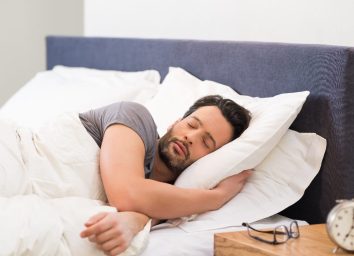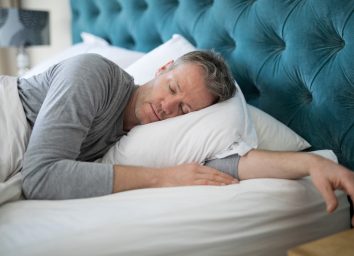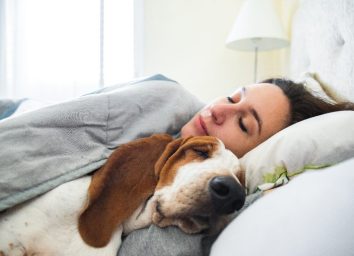Why You’re Not Sleeping Anymore As You Get Older, Expert Says
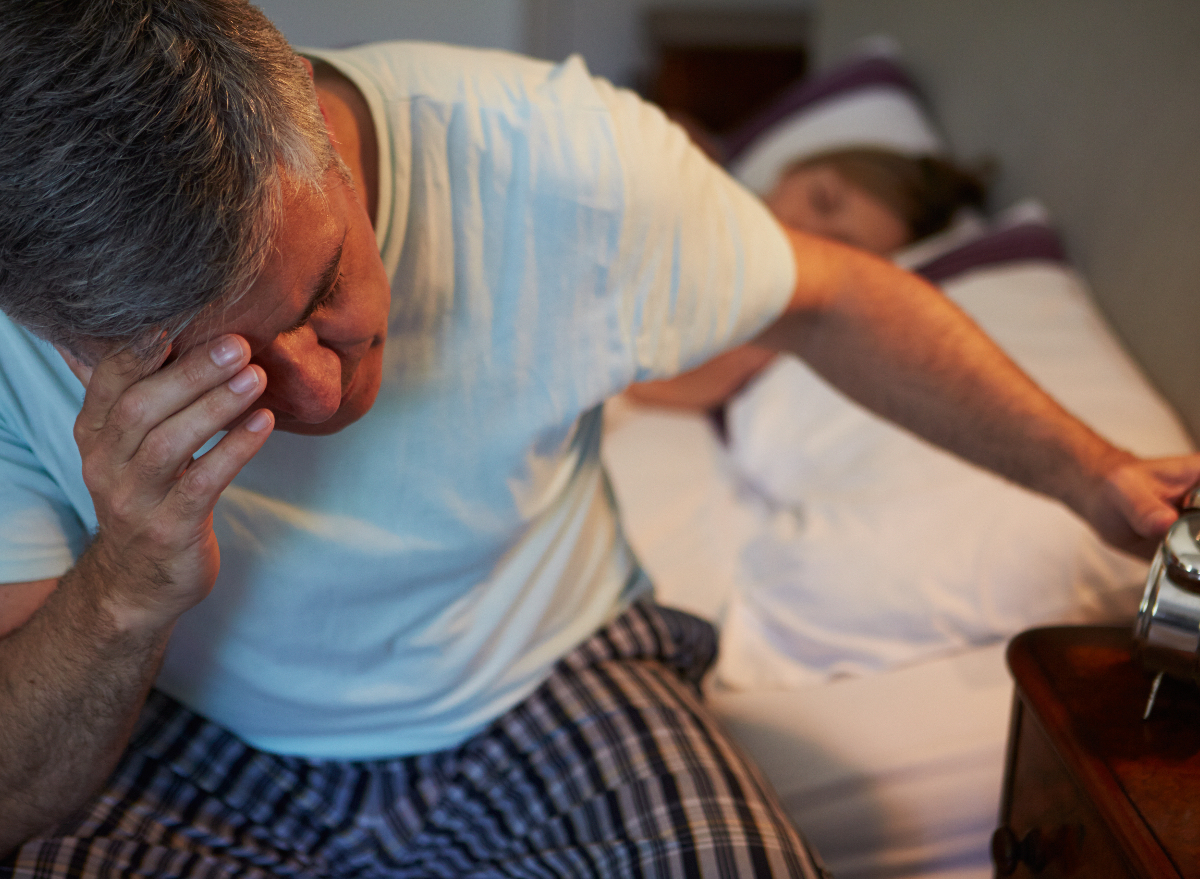
Not sleeping much? You’re not alone. It’s not uncommon to have trouble enjoying a solid night’s sleep, and it’s even more difficult for older individuals to hit the pillow and start peacefully dreaming the night away. What’s always been a natural, perfectly enjoyable time to relax and recharge ends up being an extremely frustrating night of clock watching. All you want to do is get some restful shuteye before morning rolls around, and now you’re not sleeping anymore as you get older. It’s not a happy situation to be in, and you understandably want to know what changed.
We reached out to Colin Espie, PhD, Co-Founder and Chief Scientist of Big Health and Professor of Sleep Medicine at the University of Oxford who sheds much light on this daunting pattern. Read on to learn more about why you’re not sleeping anymore as you get older. And next, be sure to check out The 6 Best Exercises for Strong and Toned Arms in 2022, Trainer Says.
Less deep sleep is normal as you grow older
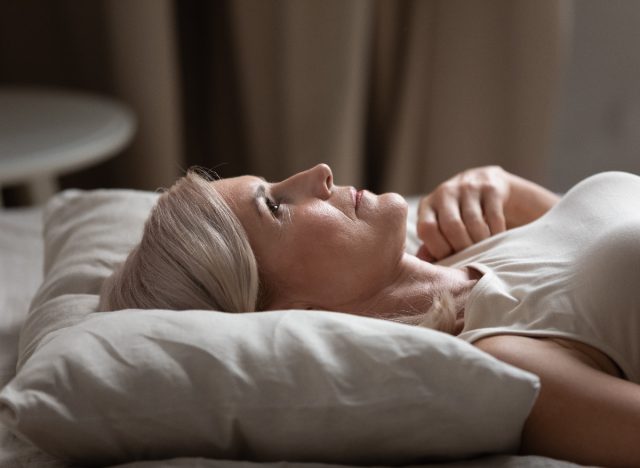
Espie explains that later in life, your sleep tends to be a bit more fragmented. It’s normal to have less deep sleep, as well as intermittent periods of being awake. But why is this so? According to Espie, “Many older adults experience a shift of their natural sleep rhythms. There’s an aging of [what’s known as] the circadian clock.”
Your circadian clock has a 24-hour rhythm and is guided by your body, internally. Your internal clock regulates everything from your sleeping and waking phases, to your body temperature, eating and digestion, and so forth.
Related: Bad Sleeping Habits That Could Lead To Weight Gain, Expert Says
Circadian changes are a natural occurrence; a “consequence of healthy aging,” if you will
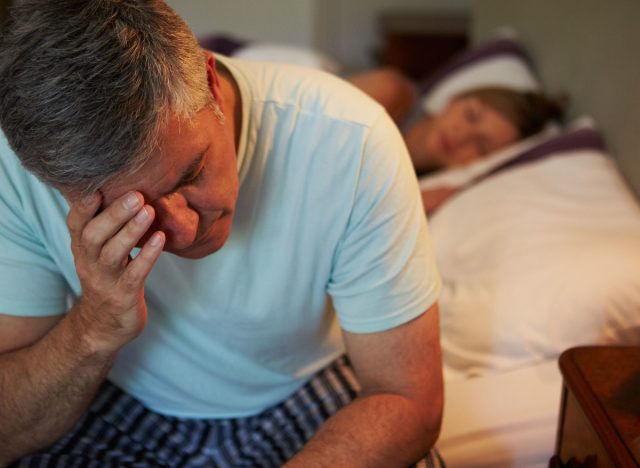
As you get older, you tend to become sleepier at earlier times each night and wake up earlier each day. This is just the opposite of a teenager’s circadian cycle, which keeps individuals in that age bracket awake pretty late into the night. Espie explains, “Circadian changes can also contribute to older adults feeling drowsy during daylight and alertness in the early hours.” He also adds that the circadian changes are a natural occurrence; a “consequence of healthy aging,” if you will. However, circadian changes are actually even more distinct in individuals who have dementia, Espie notes.
Related: Can’t Sleep? These Are The 3 Best Tips For A Better Night’s Rest
A previous study revealed older individuals were much more likely to wake up during their slumber
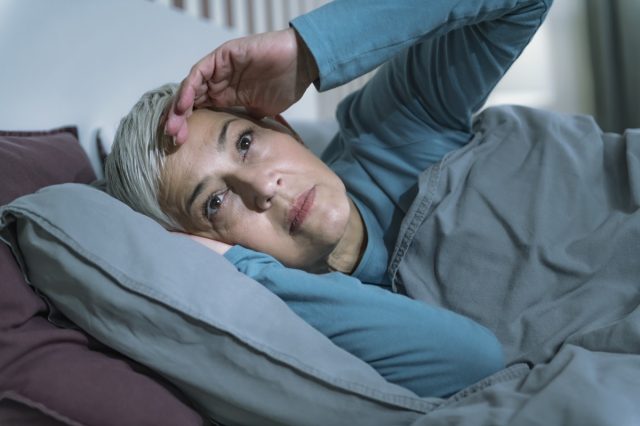
One more indicator that you’re not alone in the lack of blissful sleep is a study performed by Brigham and Women’s Hospital. Researchers analyzed data on sleeping patterns of individuals 21 to 30 years of age, compared to that of adults 60 to 74 years of age. According to the study’s lead researcher, Dr. Klerman, “Our study found that both young and old people had no trouble falling asleep, but the older population was four times more likely to wake up throughout the night when compared to younger people.”
There is greater difficulty with older, healthy adults in staying asleep and not falling back to sleep after waking up sometime during their slumber. Hopefully, this data and other research will help to learn even more about sleep, or the lack thereof, as you age.
For more…
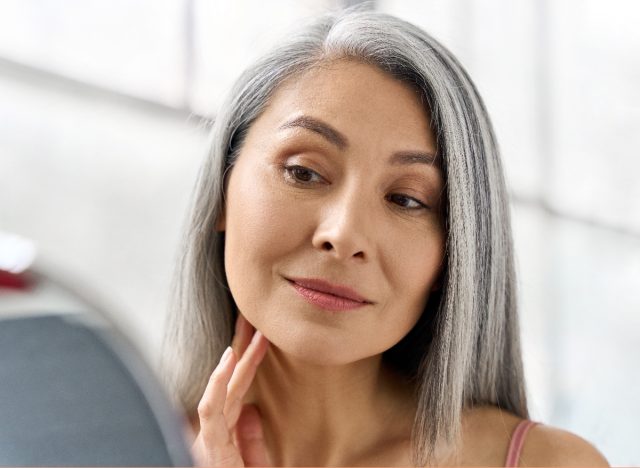
For more mind and body news, be sure to check out Menopause Keeping You Awake At Night? Here’s What You Should Know and The #1 Skincare Routine For Ageless Skin, Top Dermatologist Says.
